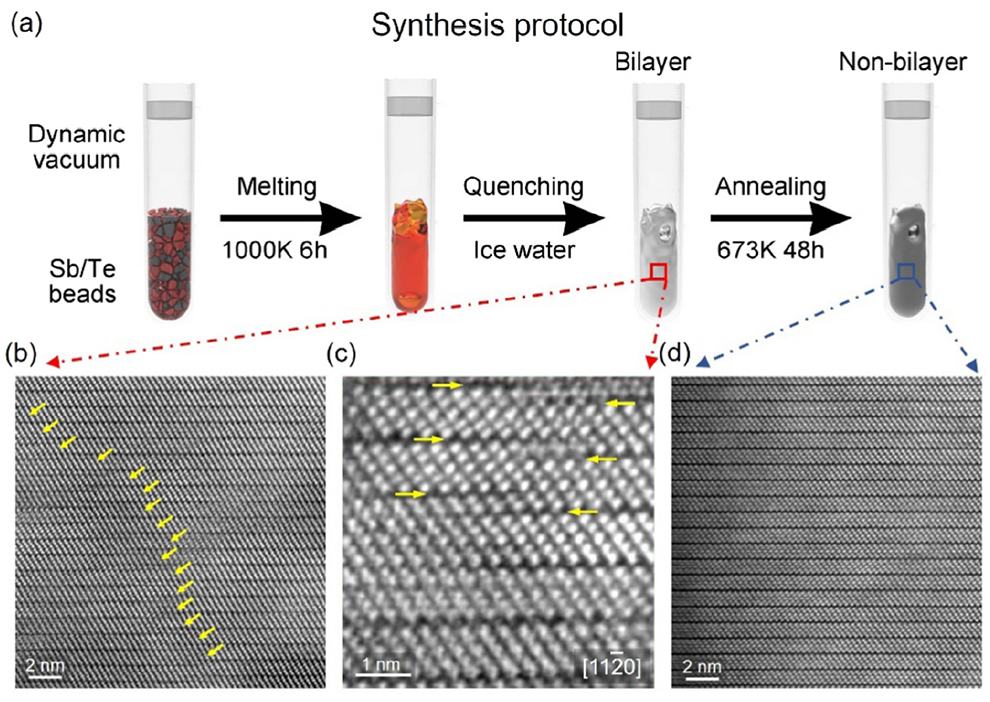Lattice defects are typically used to tailor the thermoelectric properties of materials. It is desirable that such defects improve the electrical conductivity, while, at the same time, reduce the thermal conductivity, for an overall improvement on the thermoelectric properties of materials. Here, we report on an extended defect in Sb2Te3 consisting of swapped bilayers with chemical intermixing of Sb and Te atoms, which can be generated and effectively manipulated in polycrystalline samples through synthetic methods and thermal treatments. The swapped bilayers bridge the spatial gaps between the Sb2Te3 quintuple-layer blocks, enhancing the charge carrier mobility and thus the electrical conductivity. These defects also result in a reduced lattice thermal conductivity through suppressing phonon transport. These synergistic effects contribute together to an improved thermoelectric quality factor and an enhanced figure of merit (zT) value in Sb2Te3.

Synthesis protocol and atomic-resolution imaging of Sb2Te3 samples.
Link to the article: https://www.sciencedirect.com/science/article/pii/S2211285520310594
This work is done by Prof. Wei Zhang and Prof. Zhongqi Shi at Xi’an Jiaotong University, in collaboration with Dr. Jiangjing Wang and Prof. Matthias Wuttig at RWTH Aachen University. Prof. Zhang’s group is a part of Center for Alloy Innovation and Design at XJTU, focusing on the investigations of phase-change materials for advanced memory and neuromorphic computing applications. Prof. Zhang hosts international students for degree programs and short-term visits regularly. He could be reached via wzhang0@mail.xjtu.edu.cn More information can be found at http://gr.xjtu.edu.cn/en/web/wzhang0/home


